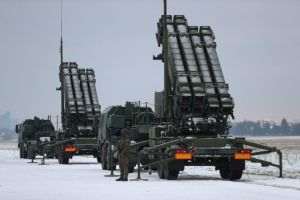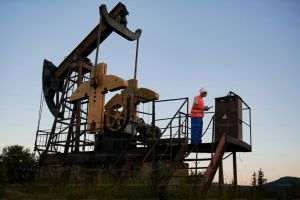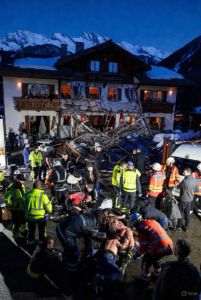
• Israel stuck
Saddam Hussein's regime survived nineteen days of invasion by US-led forces. They entered Iraq on March 20, 2003 and captured Baghdad on April 9, 2003, when Saddam fled and those around him scattered.
In a single day, political power dissolved.
(Saddam was captured on December 13, but his regime was already history).
The Israeli military does not achieve the same effectiveness in the Gaza Strip, despite its overwhelming military superiority over Hamas, because the "Iraq model" does not work in the Gaza Strip.
After six months of war, Hamas continues to rule the Gaza Strip - the numbers of dead and wounded there are reported by the Gaza Ministry of Health (an agency still controlled by Hamas).
A military report dated May 8, 2024 stated that "Hamas leaders have probably calculated that Hamas will survive an operation in Rafah and that Hamas should therefore follow through on its maximalist ceasefire demands without major concessions."
The decapitation of Hamas has been taken into account: in the Israeli conclusion, the assassination of the leaders of Hamas only plunges the organization into the absolute uncontrollable, but cannot stop its regeneration.
• The military imbalance between Israel and the Gaza Strip
The inefficiency of the Israeli army is, apparently, inexplicable, given its overwhelming superiority over the military forces in the Gaza Strip.
The ranking of Israeli firepower in the world top places it 17th in the world, ahead of Ukraine.
Romania is in 47th place.
The Gaza Strip is not at all.

Although it is said that the Israeli military power and that of the Gaza Strip are not comparable, the media made the comparison, nevertheless.

Observation
A special mention for the name of the Israeli tanks "Merkava" (some experts place the Merkava Mark 4 among the top three tanks in the world, along with other notable tanks such as the American M1 Abrams and the German Leopard 2).

In fact, some of the criteria that bring the superiority of the international rank of the Israeli army, such as nuclear weapons, do not matter at all in the military struggle with Hamas, but even so, the inferiority of the Palestinian army is overwhelming. Despite this quantitative comparison of conventional military power between Israel and the Gaza Strip, however, Hamas is waging an unconventional battle with hidden supporters, making direct comparison inappropriate.
Hamas fighters avoid overt contact with the enemy, practicing the "give and run" tactic.
But there are two other reasons why the Israeli army has no progress in destroying Hamas:
1. The big heads of Hamas cannot be hunted in the Gaza Strip, they live in Qatar, Turkey, Lebanon or travel permanently between Iran, Russia and the Arab countries.
2. The Palestinian population supports Hamas.
• Hamas big bosses from foreign countries
Hamas obtains funding from several sources and has a wide range of investments, as the Washington Post claims (9):
1. Fees and taxes:
2. Investments:
3. Smuggling:
4. International funding:
a UN, which does not recognize Hamas as a terrorist organization, delivered almost 400 million dollars to it in the years 2021/2023. (10)
5. Expenses:
Some of the Hamas leaders living abroad are rumored to have amassed billions of dollars in fortunes, although no one has provided evidence, only hints of their luxurious lives and exorbitant purchases.
For example, Israel's Foreign Ministry has refused to provide any evidence to support its claim that Ismail Haniyeh and other top Hamas leaders are personally worth billions of dollars.
Ismail Haniyeh (11): Chairman of the political office of Hamas. He lives abroad, mainly in Qatar and sometimes in Turkey. Hamas chief managed to run operations from Qatar; Haniyeh opposes peace or any negotiations with Israel.
His fortune is estimated at between 2.5 and 4 billion US dollars. During the 2023 Israel-Hamas war, the Israeli military captured Haniyeh's receipts for jewelry worth hundreds of thousands of dollars. A Hamas spokesman did not respond to requests for comment about Haniyeh's personal wealth.
Khaled Meshaal (12): Former political leader of Hamas, lives in Qatar. Under his leadership, Hamas stunned the world by winning a majority of seats in the 2006 Palestinian legislative elections. Mashal stepped down as chairman of the Hamas Politburo at the end of his term in 2017. The Six-Day War of 1967 forced Mashal's family to fled the West Bank and has since lived in exile in other parts of the Arab world. For this reason, he was considered part of the "external leadership" of Hamas.
Israeli media have published stories of widespread corruption within the Hamas leadership, claiming that Mashal and Abu Marzook embezzled up to $2.5 billion each, as estimated by the Israeli government. Mashal denied the corruption allegations.
Abu Marzook: Heads Hamas' "international relations office" and lives mainly in Qatar and sometimes in Lebanon.
He has a fortune estimated by the Israeli government at 3 billion dollars. (13)
Saleh al-Arouri: Vice-President of the political bureau of Hamas, he is sometimes in Lebanon, sometimes in Qatar; he was killed in early January 2024 by an Israeli drone strike in Beirut. (14)
It is speculated that Saleh al-Arouri's fortune could reach several million dollars. These speculations stem from his alleged involvement in various financial and political operations of Hamas, as well as the support the organization may receive from external sources. Estimates of his wealth are unconfirmed.
Other Hamas leaders who do not live in the Gaza Strip:
Mahmoud al-Zahar: A senior member of Hamas who lived in Qatar and other countries in the region. Izzat al-Risheq: Another senior member of the Hamas politburo who lived in Qatar. Osama Hamdan: A senior representative of Hamas who lived in Lebanon.
Husam Badran: Senior member of the Hamas politburo who lived abroad, including in Qatar.
The United States and Israel have tacitly accepted the presence of Hamas leaders abroad, considering it preferable to let them live somewhere where they can be monitored, rather than in Iran, for example, where they cannot be monitored.
However, after the attacks of half a year ago, some American politicians want to review this option, asking for the clarification of relations with Qatar and demanding the handing over of Hamas leaders.
"Haniyeh is really important - he's one of the bin Ladens in this story," said Mark Wallace, executive director of United Against Nuclear Iran and a former official in the George W. Bush administration, adding: "It's wrong that he lives in Qatar in luxury, seemingly beyond our reach. Qatar must hand him over." (15)
Although the group and its leaders have faced US sanctions since 1995, the Treasury announced new sanctions against a series of senior Hamas leadership officials, seeking to undermine the financial flows that fueled the disaster in Israel. According to the international press, the contrast between the poverty of the ordinary inhabitants of the Gaza Strip and the opulence of Hamas leaders abroad is striking.
How do you explain, then, the popular adherence to Hamas?!
"I think historically the Palestinians in Gaza have rallied around Hamas when it has escalated its resistance because they understand that this is the only way they can engage with the Israeli authorities and its regime. of apartheid," said Tareq Baconi, chairman of the board of al-Shabaka, a Palestinian think tank. (16)
• Hamas is an ideology, not just an organization
Regardless of an eventual Israeli military victory, it is almost certain that Hamas will not disappear from the Palestinian political scene, ACLED analysts wrote on January 17 (17), continuing as follows:
"Hamas is deeply rooted in Palestinian society and draws its strength from its Islamic ideology and narrative of resistance against the occupation. The conflict in Gaza appears to have even strengthened Hamas' ideology of resistance among Palestinians, and the group will continue, in some form or otherwise, to influence the trajectory of events in Palestine in the future."
Hamas has the ability to mobilize significant numbers of fighters at times of need, which suggests its popular support, despite the fact that the organization has been accused of human rights abuses, suppressing political opposition and limiting civil and expression liberties.
Instead of disbanding under the pressure of the Israeli army's offensive, Hamas recruits and mobilizes fighters with efficiency, which it would not be able to do without the collaboration of the local population, without its logistical support.
The organizational structure of Hamas is composed of the following main elements:
1. Political Bureau:
2. Military Wing:
3. The social network:
4. Departments and divisions:
The lack of political alternatives contributes to the creation of an appearance of support for the organization, especially since the opposition to Hamas can be risky, in addition to the undoubted sincere support.
The fear of reprisals or persecution can lead the residents of the Gaza Strip to support Hamas or refrain from expressing opposition to the organization (selflessness in battle can sometimes be explained by the fear that those close to them will not be punished).
Those who have lived under authoritarian regimes have the experience of this saving hypocrisy.
Many Israeli citizens believe that much of the population of the Gaza Strip is complicit with Hamas.
But if this complicity is true, then the two main war objectives declared by Israel - ensuring the freedom of all the hostages and destroying the military and governance capabilities of Hamas in Gaza - become very difficult to achieve.
The destruction of Hamas's military and governance capabilities means, in fact, the destruction of Hamas, but the broad complicity with Hamas of the Palestinian population equates the destruction of Hamas with the extinction of a large part of the population.
In fact, this is what Benjamin Netanyahu's statement on October 7, 2023, right after the Hamas attack, means: "We will turn the Gaza Strip into a desert island."
• Desert island
"No electricity, no water, no gas," Israeli Defense Minister Yoav Gallant declared on October 7, 2023, intending to impose a complete siege on Gaza.
After six months of war and siege, the death and destruction in Gaza terrifies the world.
But these tragic results have not reached the limits, the Gaza Strip has not yet become a "desert island". The expression used by Netanyahu recalls a biblical verse from Genesis, 19:
"25. And he destroyed these cities, all their surroundings, all the inhabitants of the cities and all the plants of that land".
It is about the "cities of the plain" Sodom, Gomorrah, Admah and Zeboim, burned by God because of the sins of their inhabitants.
I dealt with the subject, already, on November 9, 2023, in the article "Worms from the land of the Gaza Strip" (20): "The Palestinian war in Israel is accompanied by a confrontation of man with depravity", I wrote then and forgot; the word "depravity" in the title of this article is not an echo, but came to me spontaneously (I am surprised by my own consistency of expression).
I wrote: "When I understood that God, in the "cities of the plain" burned women, children, the elderly and the dying in a single moment, when I really realized that the Bible affirms that God is the author of a genocide [...]"
I continued:
"Then I understood the lesson.
I remembered that God says that he punishes the sin of the parents up to the third and fourth generation. And the explanation of the exegetes shows that God gives children respite to correct the sin of their parents, and grandchildren and possibly great-grandchildren.
But, when he finds that the sin regenerates every time, then he punishes the descendants, because they are guilty in the same way as their ancestors.
This was the case with Sodom."
It is the difference between a revolution and dispensing justice in a judgment.
Today, the world notices that Benjamin Netanyahu did not trigger a judgment or a revolution in the Gaza Strip, but a revenge.
And he also observes that Benjamin Netanyahu is not in the position of God, to burn Sodom.
But of a man, even if prime minister.
A man under judicial pressure.
Israel is bogged down in a war objective that the world, of any religion, does not allow.
Post Scriptum
The use of atomic weapons should be considered, said Amihai Eliyahu, who headed the country's Ministry of Heritage, during a radio broadcast, according to a November 5, 2023 report published by the Indian financial newspaper "Mint" (20).
"There are no uninvolved civilians in Gaza," he said during the interview, adding that providing humanitarian aid to the besieged region would be a "failure," the Indian newspaper quoted him as saying.
The source mentions that a statement issued by Netanyahu's office disapproved of the minister's statements. "Minister Amihai Eliyahu's statements are not based on reality. Israel and the IDF are acting in accordance with the highest standards of international law to avoid harming innocents. We will continue to do so until our victory," the statement quoted Netanyahu as saying.
But, in my opinion, when among the 35 thousand Palestinians killed in Gaza, there are 14 thousand children, then the Israeli army is killing in droves, without any connection with the "standards of international law" invoked by Netanyahu.
Another statement issued by the Prime Minister's Office on November 5 informed that Eliyahu was suspended from government meetings indefinitely.
Notes
(9) https://www.washingtonpost.com/business/2023/11/02/hamas-funding-ismail-haniyeh-us-sanctions/
(10) https://nypost.com/2023/11/07/news/hamas-leaders-worth-11bn-live-luxury-lives-in-qatar/
(11) https://ro.wikipedia.org/wiki/Ismail_Hanieh
(12) https://en.wikipedia.org/wiki/Khaled_Mashal
(13) https://nypost.com/2023/11/07/news/hamas-leaders-worth-11bn-live-luxury-lives-in-qatar/
(15) https://www.washingtonpost.com/business/2023/11/02/hamas-funding-ismail-haniyeh-us-sanctions/
(17) https://acleddata.com/conflict-watchlist-2024/palestine/
(18) https://www.bursa.ro/stare-de-razboi-in-israel-in-urma-atacului-hamas-66769053
(19) https://www.bursa.ro/viermii-din-pamantul-fasiei-gaza-01422155
















































